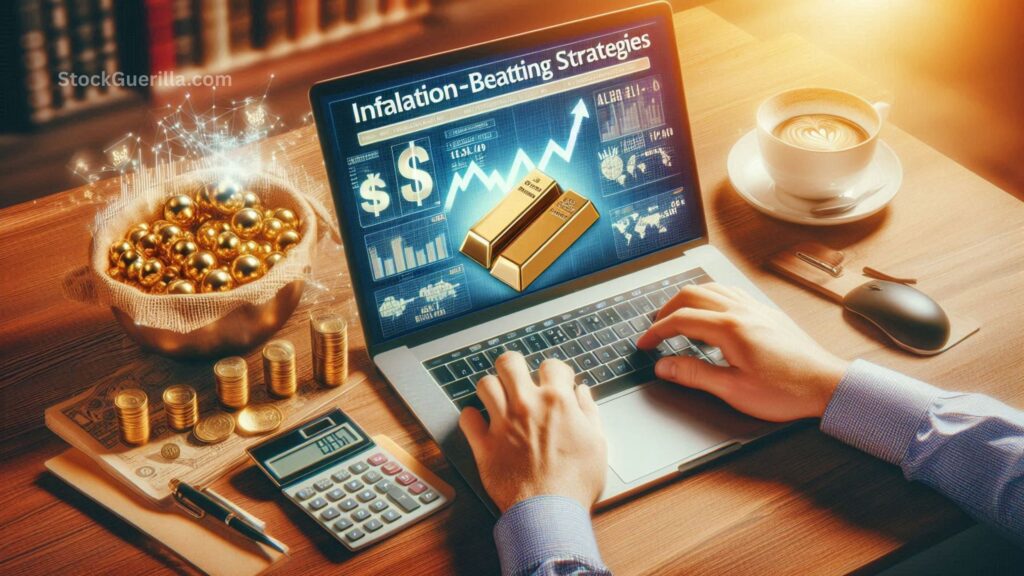How does Inflation Affect Different Asset Classes?
Inflation—basically, the rise in prices of everyday goods and services—is something that affects everyone in India. Whether you’re buying groceries, running a business, or planning your financial future, inflation eats away at your money’s value over time. For investors, the main challenge is protecting their returns so that their money doesn’t lose its purchasing power as prices go up.
Let’s say you invest ₹10,000 in a fixed deposit that gives 5% annual interest. Sounds great, right? But if inflation is 3%, your real return is only 2%. So even though your money grows to ₹10,500 in a year, what you can actually buy with that amount has gone down. That’s the hidden cost of inflation.
How Inflation Affects Different Investments
To protect your money during inflation, it’s important to understand how different types of investments react to it:

1. Fixed-Income Instruments (like FDs or bonds):
These give you fixed returns, which might seem stable—but inflation can reduce their real value. What you earn might not keep up with rising prices.
2. Equity (stocks):
Over time, stocks can grow faster than inflation, which makes them a good long-term choice. But in the short term, stock markets can be unpredictable, and returns might not always beat inflation right away.
3. Real Assets (property, gold):
Real estate and gold usually do well when inflation is high. Property values often rise with inflation, and gold is seen as a safe-haven investment that holds its value.
4. Commodities (oil, crops, metals):
These tend to go up in value when inflation rises, so they can offer some protection. But keep in mind—commodity prices can swing wildly due to global events, weather, or supply-demand issues.
5. Cash:
Holding too much cash during inflation is risky. As prices rise, the value of your cash drops. It’s good for short-term needs, but not great for long-term saving.

Also Read: Which Financial Sector Stocks are Undervalued?
How Inflation Hurts Your Savings and Investments

Inflation reduces what your money can buy. Over time, if you don’t invest smartly, you might end up with the same amount of money, but it won’t stretch as far. Here’s how inflation directly affects your finances:
- Reduced Buying Power: Your savings won’t go as far in the future as they do today.
- Higher Interest Rates: To fight inflation, central banks often raise interest rates. This can hurt stocks because companies find it more expensive to borrow money.
- Mixed Investment Results: Some investments suffer during inflation, but others—like gold, oil, or property—can do well and grow in value.

Also Read: What is the Role of a Stock Exchange?
Smart Strategies to Beat Inflation
You don’t need to fear inflation—you just need a smart plan. Here are some simple strategies to help protect your wealth:

- Diversify Your Portfolio: Don’t put all your eggs in one basket. Mix up your investments—some in stocks, some in real estate, some in fixed deposits or bonds.
- Think Long-Term: Short-term ups and downs are normal. Stick with solid companies that have strong financials and can handle rising costs. Over time, compounding returns can beat inflation.
- Look into REITs (Real Estate Investment Trusts):
These let you invest in income-generating properties without buying actual buildings. As real estate values rise with inflation, REITs can help grow your wealth too. - Add a Bit of Gold or Commodities:
A small portion of your portfolio in gold or other commodities can act as a cushion when inflation spikes.

Also Read: How to Assess Risk Tolerance in Investing?
Final Thoughts
Inflation may seem like a threat, but with the right strategy, you can stay ahead of it. Focus on diversification, keep your eye on long-term goals, and include a few inflation-friendly assets in your portfolio. Also, don’t forget to review and adjust your investments regularly to keep them aligned with changing market conditions.
With some planning and smart choices, you can grow your wealth—even when prices are on the rise.




Post Comment